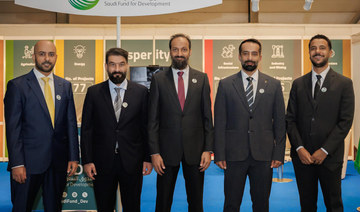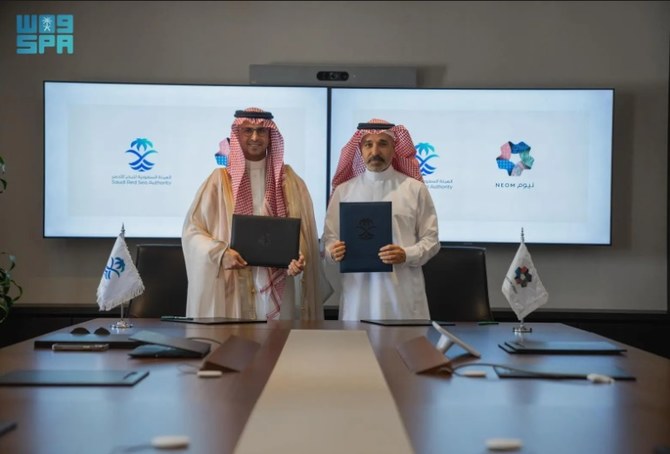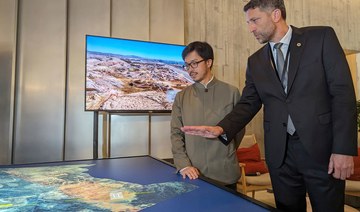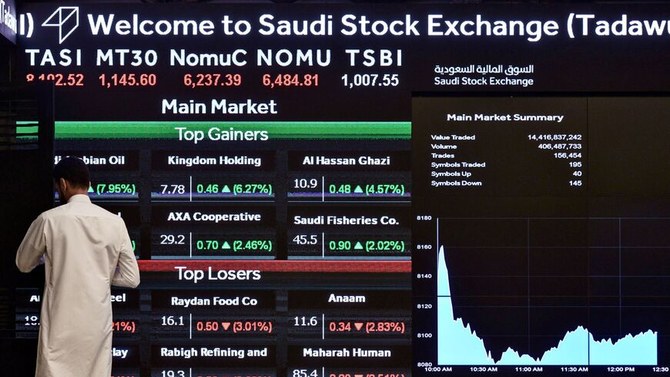RIYADH: Since its establishment in 1974, the Saudi Fund for Development has been extending a helping hand to other countries in the form of soft loans and grants for different development projects in various fields.
According to official data, since its inception, the fund supported more than 800 development projects worth $20 billion in over 100 countries. The Saudi fund continued with its efforts in 2023 as well. Following are highlights of the fund’s activities during 2023.
Oil derivatives for Pakistan
At a time when Pakistan was facing a tough economic situation amid dwindling forex reserves and rapidly depreciating national currency, SFD financed oil derivatives worth $1 billion for the South Asian country in January 2023.
Oil derivatives are financial instruments that use energy products, such as crude oil, as underlying assets. They can be traded to access their value used as the basis of the contract.
“The agreement aims to support the economy of Pakistan, enhance sector growth, navigate economic challenges, and build a sustainable economy,” the Saudi fund in a statement issued at that time.
“It comes as a continuation of the support provided previously in 2019 by Saudi Arabia to finance oil derivatives with a total of $4.4 billion,” it added.
In April, SFD signed a $240 million loan agreement to help build a major hydropower complex in Pakistan’s northwest.
The Mohmand Multipurpose Dam Project will enhance water and food security, and improve the standard of living in Pakistan’s Khyber Pakhtunkhwa province.
In August, SFD also inaugurated the King Abdullah Campus of Azad Jammu and Kashmir University in Pakistan by allocating a grant of $90 million for the project.
The campus aims to provide research opportunities and contribute to the sustainable socio-economic development of Pakistan, along with providing education to over 10,000 students.
SFD enters Caribbean nations
In January 2023, SFD forayed into the Caribbean region by signing an $80 million financing agreement for the expansion of the University of the West Indies at Five Islands in Antigua and Barbuda.
This funding is currently being used to achieve sustainable development goals in the Caribbean, along with promoting scientific innovation and adding additional educational facilities to the university.
The financing agreement also includes constructing seven energy-efficient buildings to accelerate the sustainability journey.
Saint Vincent and the Grenadines
In April, the fund signed two development loan agreements with Saint Vincent and the Grenadines, another country in the Caribbean.
The first agreement worth $ million will oversee the construction of a primary care center to improve the quality and resilience of the health care sector in the island nation, while the second one worth $10 million was allocated to construct a cultural center and a market for craft and agricultural products in Belle Vue.
Together, the two projects will contribute to achieving the UN Sustainable Development Goals, specifically good health, well-being, decent work, and economic growth.
These projects are also expected to significantly promote tourism, social and cultural growth, and public health in Saint Vincent and the Grenadines.
Mangoky Bridge in Madagascar
In August 2023, SFD laid the foundation stone to kick off the construction of the Mangoky Bridge in Madagascar, an island country lying off the southeastern coast of Africa.
For this project, the fund contributed $20 million as a soft loan, while the construction work is also getting aid from institutions and development funds in the Arab Coordination Group and the government of Madagascar.
Upon completion, the Mangoky Bridge will connect the Atsimo-Andrefana and Menabe regions in Madagascar, and it is also expected to reduce the travel time between these two destinations, thus facilitating local farmers to get their produce to the market.
$53.33m agreement to support Oman
In September, SDF signed a $53.33 million finance agreement with Oman to support the growth of small and medium enterprises in the country.
The funding is part of a larger $150 million support program for Oman provided by the Kingdom through the SFD.
Climate project in Grenada
In October, SFD signed a loan agreement with Grenada to provide $100 million for a climate-smart infrastructure project.
SFD, at that time, said that the loan would help develop climate-smart infrastructure in the towns of St. George, Greenville, and their neighboring areas in Grenada.
The project includes constructing breakwaters, developing water and sewage networks, and modernizing and developing the sewage treatment system.
The climate infrastructure project also comprises remote sensors to monitor air pollution in Greenville.
Loan to the Bahamas and Mauritius
In September, SFD inked two loan agreements totaling $140 million to accelerate the progress of infrastructure projects in the Bahamas and Mauritius. The first loan agreement, worth $70 million, will be utilized to fund the Family Islands Airports Renaissance Project.
The second loan agreement, also valued at $70 million will be used to support the “Construction of Riviere des Anguilles Dam Project.”
Development loan for Tajikistan
In December 2023, SDF signed a development loan agreement worth $100 million with Tajikistan to fund the Rogun Hydropower Project, a landmark initiative that will enhance energy, food, and water security, and foster sustainable development in the Central Asian country.
SFD’s development loan will help contribute toward a more sustainable and equitable food and water future for Tajikistan, while driving the country’s energy transition and climate resilience, resulting in affordable and reliable energy to enhance productivity and social well-being among the population, according to a press statement.
The project aims to contribute to national energy security and will help advance sustainable development in Tajikistan, by providing a renewable electricity supply to meet local demand and expand electricity production domestically and regionally.
The loan agreement will also finance the construction of a 335-meter-tall dam, which will enhance irrigation capabilities and bolster agricultural activities across Tajikistan.




















